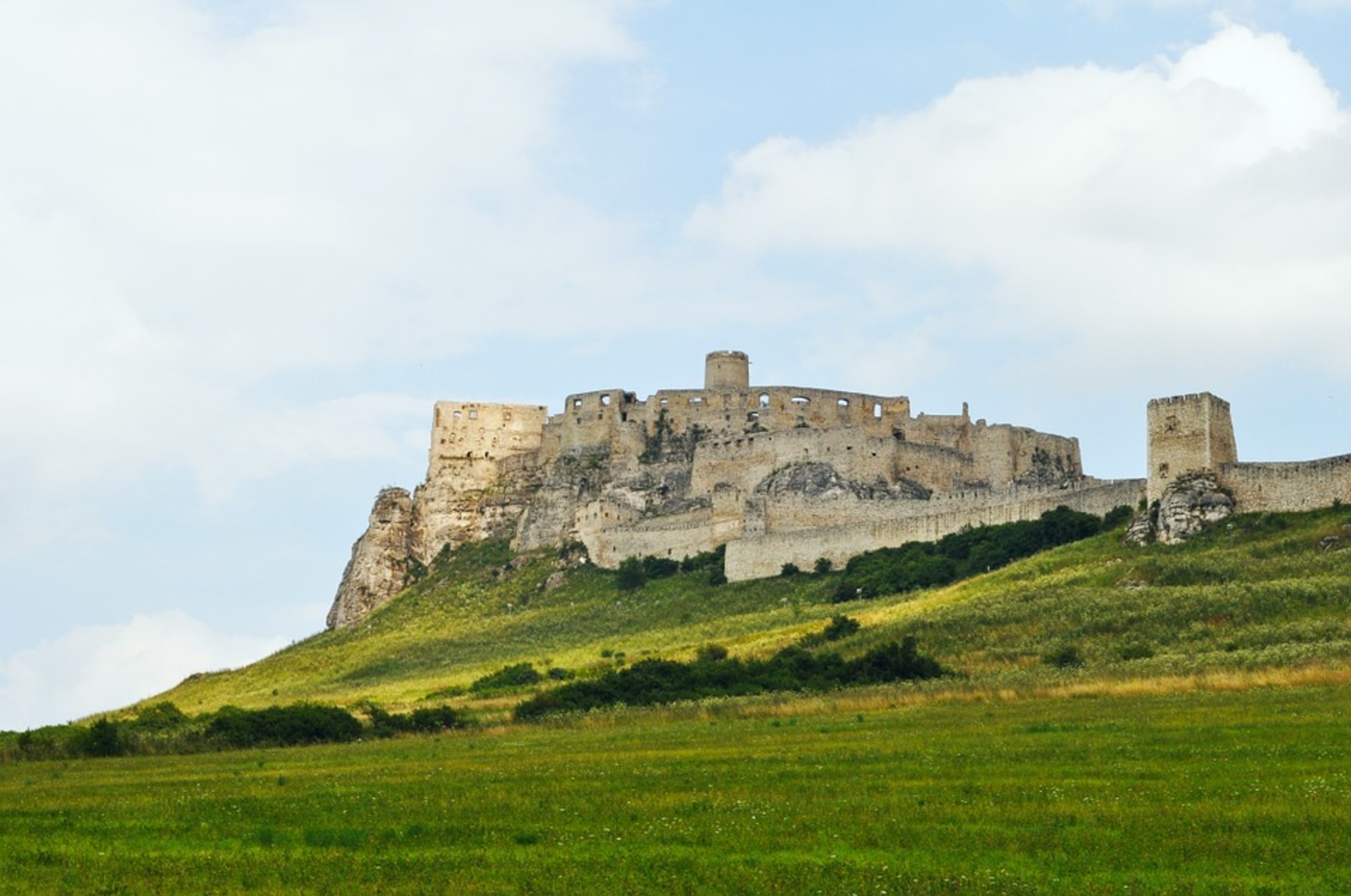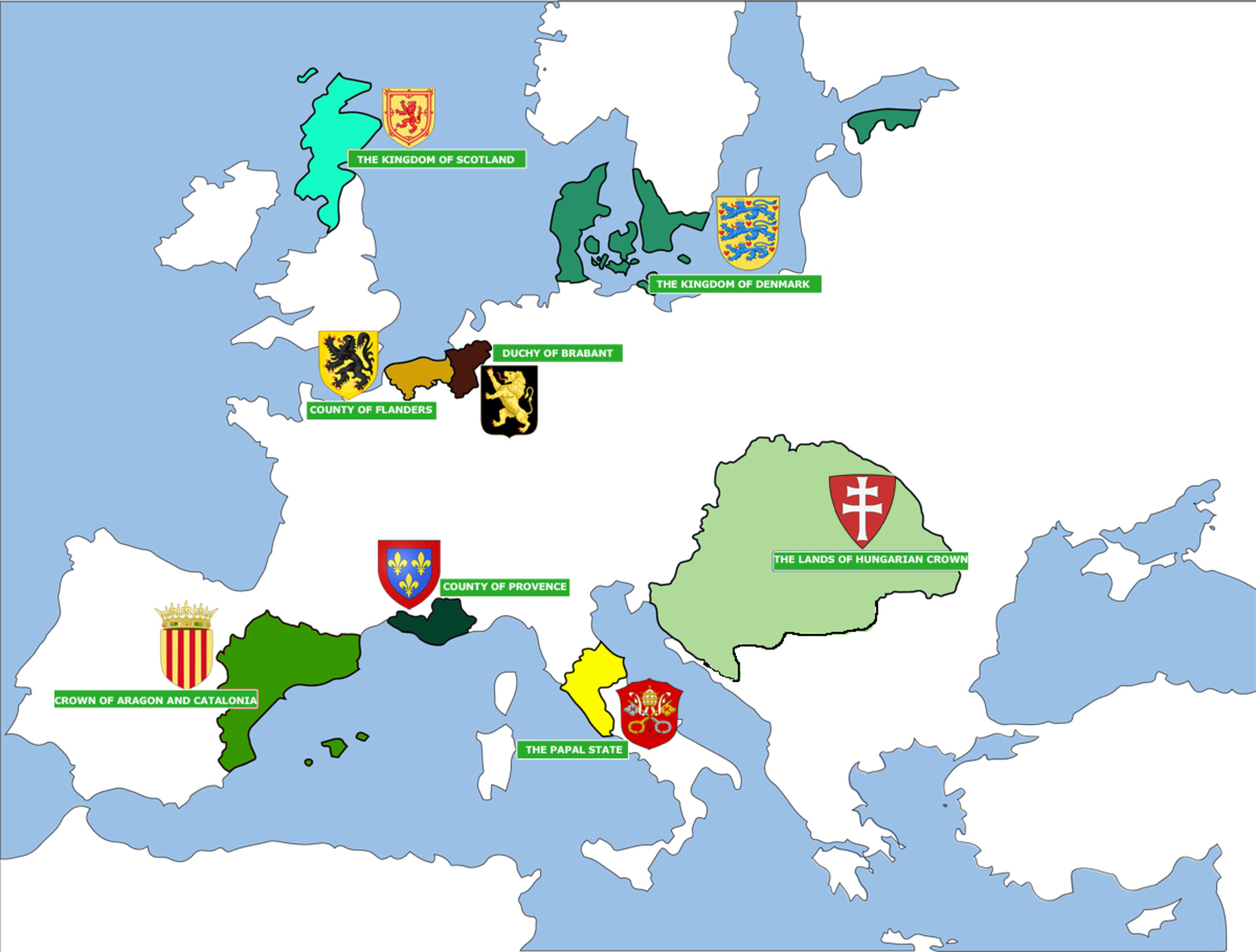European Championship 1250
At the mid-13th century the Holy Roman Empire remains without the mighty Emperor Fredrick II. Barbarossa. The Mongol's invasion has devastated the eastern and central Europe. Christian Reconquista takes a sweep on the Iberian Peninsula. Venice and the Flemish cities are experiencing an economic growth. Crusaders missions gain other destinations and goals, such as wars against the heretical movements in Europe. The Inquisition enters on the European political and religious scene. Danish rulers are fighting for supremacy with the Teutonic order over the Baltic etc.
The emperor Frederick II Barbarossa, who had spent the majority of his life on Sicily fighting the pope and northern-Italian cities, died in mid-13th century. The Kingdom of Poland and The Lands of the Hungarian Crown were recuperating from the devastating campaigns by the Mongols, whose hordes brought an end to the “Golden Age” of the second Bulgarian Empire, but the longest-lasting consequences would be felt by the principalities of Kyivan Rus', whose rulers had to submit to their rule. The Pyrenean Peninsula entered the period of domination of Christian states that have, through the Reconquista, i.e. re-conquering, pushed the Moors towards the south. However, while the Reconquista may have created an impression that there was an unequivocal air of hostility and conflict between the Christian and Muslim worlds in that area in the Middle Ages, this is far from the truth. Both Muslim and Christian rulers warred amongst themselves as well, and the two fractions were also known to form alliances. Wars against Muslims in the Middle East gradually became less important. Although the official motive for the Crusades was the return of the “Holy Land” under the wing of Christian civilization, those wars, in most cases, ended in failure, or they took a serious turn in a completely different direction along the way. Such a case occurred at the beginning of the 13th century, when the Crusaders, with the help of Venice, sacked Constantinople, overthrew the Byzantine Empire, whose emperors temporarily moved to Asia Minor, and founded the Latin Empire in its place (1204 - 1261). The general consequence of the Crusades was the raising of great barriers between the already mutually hostile civilizations of Islam and Christianity. The secular power of the papacy grew significantly but, except for the pope, nobody else profited from it.
The Crusades in the 13th century were given a European objective and different goals, turning into wars against the heretic movements in Europe which, however, did not signify a break from Christianity, or wars between particular religious-chivalric orders in northern Europe belonging to the pagan peoples there. Such was the case with the Teutonic Order that founded their own state next to the Baltic Sea. The Germanic colonization of the East went on at the same time, which contributed to the start of land cultivation in the new provinces, and thus strengthened and transformed the network of cities. War, an evil in the Christian mind, becomes a duty when faced with non-Christians because non-Christians, in their minds, are not really human. During the wars against heretics in the south of France, the Church also tested its new invention – the Inquisition, i.e. the Church courts, which are going to, for centuries thereon, play an important part in the preservation of power of the Catholic Church. An appeal to any kind of an impartial court was out of the question, or rather useless, since the aim of the procedure was not the establishment of the truth, but an unconditional subjection to the teachings of the Church. Its implementers, the Dominican Order, believed that they were fighting for the salvation of Christianity from the beliefs that destroy the soul. In reality, there were several Inquisitions, each of which had a different form and aims, and all of them were loosely interconnected by the authority of papal guidelines, rather than direct orders from the top. Aside from the Dominicans, the 13th century saw the rise of the Franciscan Order, as a part of the development of urban culture. By raising churches and schools in the cities, they are the reason for the deepening of religious lives of secular people. According to their way of life and spiritual mission, they are also considered a “begging” or “preaching” order. They were in constant contact with people from the margins, and by living among people and caring for the poor, they strived for the return to the unity and poverty of the Early Church, challenging the view that poverty is a result of sin.

Sources
- Stanko ANDRIĆ, Crkvene strukture predturske Slavonije'', Slavonija, Baranja i Srijem - Vrela europske civilizacije, I.sv, (ur: Božo Biškupić, Vesna Kusin, Branka Šulc), Zagreb, 2009.
- Grupa autora,''Moć i slava'': Velika ilustrirana enciklopedija, Zagreb, 2009.
- Michael JORDAN, U ime Božje : nasilje i razaranje u svjetskim religijama, Zagreb 2008.
- Hans KUNG, Katolička crkva – kratka povijest, Zagreb, 2007.
- Jacques LE GOFF, Civilizacija srednjovjekovnog Zapada, Zagreb 1998.
- Ivo RENDIĆ MIOČEVIĆ, Zlo velike jetre, Split, 1996.
- ''Reconquista'', https://en.wikipedia.org/wiki/Reconquista
- The Inquisition, Dokumentarni film, redatelj: Bruce Burgess, Viasat History, 2014.
Sources for map:
- http://www.slovak-republic.org/history/medieval-hungary/
- https://en.wikipedia.org/wiki/List_of_rulers_of_Provence
- https://en.wikipedia.org/wiki/History_of_Denmark
- http://www.zum.de/whkmla/region/lowcountries/xdchybrabant.html
- https://www.pinterest.com/pin/53550683047973700
- https://www.pinterest.com/pin/294352525626437756/
Source for photo:
